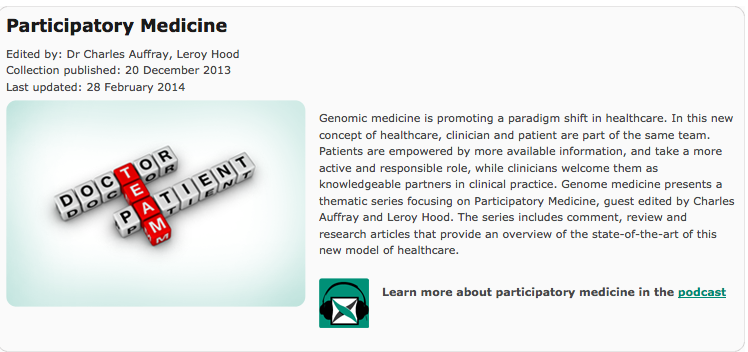Participatory Medicine Q&A with Lee Hood
 isbscience.org/news/2014/04/14/participatory-medicine-qa-with-lee-hood-2/
isbscience.org/news/2014/04/14/participatory-medicine-qa-with-lee-hood-2/
Genome Medicine created a participatory medicine series, which was guest edited by Dr. Lee Hood, president of Institute for Systems Biology, and Dr. Charles Auffray, Founding Director of the European Institute for Systems Biology and Medicine. You can read the collection of articles on participatory medicine here. It includes an editorial "Participatory medicine: a driving force for revolutionizing healthcare" co-authored by Hood and Auffray that was published in December 2013.
Genome Medicine senior assistant editor, Andreia Cunha, also produced an accompanying podcast that features in interview with Hood. Listen to the podcast.
Read the Q&A with Lee Hood about participatory medicine that was featured in BioMed Central's Biome Magazine.
Excerpt:
How would you define participatory medicine?
Participatory medicine actually has many different components. I’d say, first of all, there is a big revolution coming in healthcare. That revolution is reflected in several different names: systems medicine, P4 medicine (predictive, preventive, personalized and participatory), or personalized medicine. In a sense, each of these names reflects variations on the theme of data-driven personalized medicine. This concept encompasses the idea that soon each patient will be surrounded by a virtual cloud of billions of data points and that we will have the computational analytics to integrate these data and reduce their enormous dimensionality to simple hypotheses about how to optimize wellness and minimize disease for each individual. — Dr. Lee Hood from a Genome Medicine Q&A





